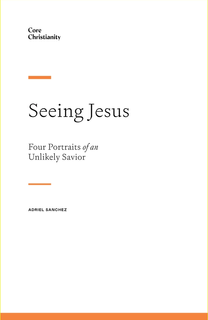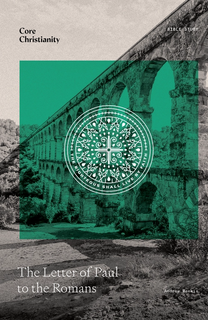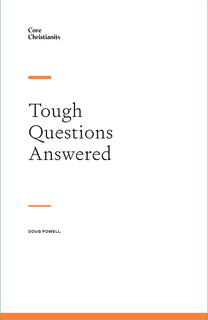The church’s relationship to civil government has changed over time. In 313 A.D., the Roman emperor Constantine legalized Christianity. Almost overnight, a persecuted sect became the favored religion in the empire. During the Reformation, a multitude of national churches replaced the unified Catholic church of the Middle Ages. The First Amendment to United States Constitution inaugurated another epochal change in church-state relations. In modern Western culture, we take for granted a separation of church and state.
But whatever the political circumstances, the church and the state have distinct and complementary roles in God’s plan.
What Is God’s Plan?
Unlike other human institutions, the church’s destiny is beyond history: “For here we have no lasting city, but we seek the city that is to come” (Heb. 13:14). The church’s identity and purpose only make sense in terms of this destiny. This world isn’t our home. We’re pilgrims on our way to another city.
We already belong to that heavenly city, which is the kingdom of God. The apostle Paul says that “our citizenship is in heaven” (Phil. 3:20). When Christ our king returns, our bodies will be raised and we’ll reach our homeland. God’s plan will be fulfilled: “Behold, the dwelling place of God is with man. He will dwell with them, and they will be his people, and God himself will be with them as their God” (Rev. 21:3).
Some Christians think that this heavenly citizenship means we should avoid political affairs. In this view, the civil government represents corruption, worldly power, and violence that can only distract or destroy us: It’s opposed to the kingdom of God. Others believe God calls Christians to make the government part of the kingdom of God.
Government has a good purpose in God’s plan, but it’s not part of the kingdom of Christ. God created both the church and political authority, but the government belongs to this passing age, while the church belongs to the new age that’s already begun.
What Role Does the Government Play in God’s Plan?
God calls the civil government to provide the justice and order that allows human society to exist. Paul says rulers “bear the sword,” (Rom. 13:4), meaning they can rightfully use force to restrain evil. The New Testament says the government is:
- “Instituted by God” (Rom. 13:1)
- “A servant of God” (Rom. 13:4)
- “An avenger who carries out God’s wrath on the wrongdoer” (Rom. 13:4)
- Given for our good (Rom. 13:4)
- Worthy of honor (1 Pet. 2:17)
Human governments never bring about perfect justice. Sometimes, governments perpetrate horrific evil rather than restraining it. But in a world of sinful human beings, God keeps relative justice and stability through political power. It’s one of his means of preserving the world, which serves his ultimate redemptive purposes.
What Role Does the Church Play in God’s Plan?
Governments can punish those who do evil, but the church can’t. Rather than “the sword,” the church holds the “keys to the kingdom” of God (Matt. 16:18). Jesus uses this phrase to describe the church’s authority.
The keys to the kingdom are the preaching of the gospel and church discipline. Preaching tells people how to enter the kingdom: through faith in Christ’s work of salvation. Church discipline seeks to reconcile unrepentant members to God and the church (Matt. 18:15–20). The civil government can’t do either of these things. They are the unique responsibilities of the church.
Through the church, sinners find redemption. Through the state, human beings receive enough order and justice to preserve society. The church holds out eternal life; the state helps sustain natural life. God rules over both, but for distinct purposes.
What Does This Mean, Practically, for the Church and Individual Christians?
As the church awaits Christ’s return, we’re dual citizens. We’re members of both the kingdom of God and an earthly nation made up of both Christians and non-Christians. How do we obey God and love our neighbors in this time when the old age and the new age overlap?
These biblical principles help provide a framework for Christians addressing political questions:
- The government exists for the good of everyone. Rulers “punish those who do evil and praise those who do good” (1 Pet. 2:14). They enforce justice so that all citizens, regardless of their religious beliefs, can live in relative peace and security.
- Christians, therefore, can claim the rights and enjoy the benefits of earthly citizenship (Acts 16:37, 22:25, 25:11; 1 Tim. 2:2).
- Christians can participate in the government, whether as voters or elected officials. These are legitimate Christian vocations (Rom. 16:23). As either voters or officials, Christians should pursue justice (Ps. 82:3-4; 2 Sam. 23:3).
- Christians need wisdom and humility in order to faithfully participate in government (1 Kings 3:9-12).
- While the institutional church may not use “the sword,” Christian citizens can support the just use of force by their government and serve in the military (Luke 3:14; Matt. 8:9; Acts 10:1).
- The church and individual Christians must obey the lawful commands of the state, pay taxes, and honor their leaders (Matt. 22:16–21; Rom. 13:1–7, 1 Pet. 2:13–17).
- Christians must do this regardless of their leaders’ or representatives’ religious beliefs. Paul and Peter told Christians to obey pagan Roman emperors. Joseph served Pharaoh (Gen. 41:37–56), Daniel served Nebuchadnezzar (Dan. 1:17–20), and God commanded the Israelites to be good citizens while in exile in Babylon (Jer. 27:8–15; 29:7).
- Christians should pray for the government (1 Tim. 2:1–4).
- Our main allegiance and concern should be with the kingdom of God. (Phil. 3:20; Col. 3:1–3; Heb. 11:10–16, 13:22; 1 Cor. 7:29–31).
- As servants of God, government will be judged by him (Ezek. 26; Amos 1-2). Before God, their power is insignificant: “Behold, the nations are like a drop in the bucket, and are accounted as dust on the scales” (Isa. 40:15).
Sinful human beings hold political office, so governments are always flawed. Often, they persecute the church. If the government requires its citizens to disobey God, Christians must “obey God rather than man” (Acts 5:29). Daniel and his friends served Nebuchadnezzar in every lawful way, but when he threatened to burn them alive if they didn’t bow before an idol, they said, “Our God whom we serve is able to deliver us from the burning fiery furnace, and he will deliver us from your hand, O King. But if not, be it known to you, O king, that we will not serve your gods or worship the golden image that you have set up” (Dan. 3:17–18).
Pilgrims and Neighbors
In The City of God, Augustine of Hippo describes two spiritual communities: the heavenly city and the earthly city. Members of the heavenly city love God above all and live in this world as pilgrims on their way to the new creation; members of the earthly city love themselves above all and are destined to eternal death. These loves and destinies are antithetical. In the present age, though, the members of these two cities live together in society, sharing many goods and interests in common.
God calls civil government to enable the pursuit of these common goods and interests. While this age remains, God calls his people to love their neighbors, working with them wherever possible to achieve the peace and justice in their societies. At same time, he calls us to love our neighbors by telling them that there’s another, lasting kingdom, a city “whose designer and builder is God” (Heb. 11:10).
What Does the Bible Say?
- The Proper Authority of the Government: Matt. 22:16–21; Rom. 13:1–7; 1 Pet. 2:13–17
- The Proper Authority of the Church: Matt. 16:18; Matt. 18:15–20
- Christians and the Civil Government: Luke 3:14; Matt. 8:9; John 18:36; Acts 5:29; 16:37, 22:25, 25:11; 1 Tim. 2:1–4
Recommended Resources
- Living in God’s Two Kingdoms by David VanDrunen
- Politics after Christendom by David VanDrunen
- Calvin on the Christian Life: Glorifying and Enjoying God Forever by Michael Horton
- A Secular Faith by Darryl Hart
- How Jesus Runs the Church by Guy Prentiss Waters










